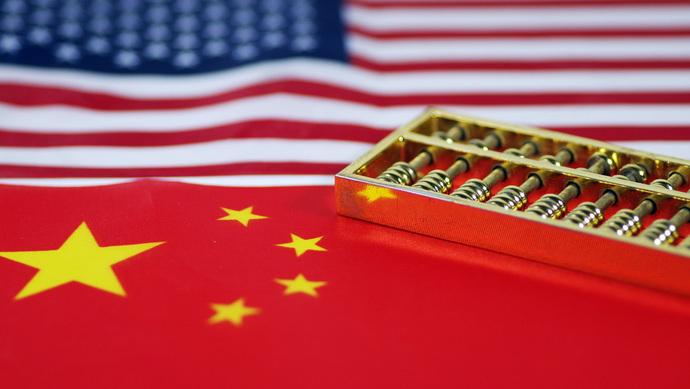本周要聞
Business
商業(yè)
Spooked by concerns over trade, geopolitical tensions and the possibility of recession, stockmarkets had their worst day of the year so far. The s&p 500, Dow Jones Industrial Average and NASDAQ indices all fell by 3% in a day. In Europe the DAX was down by 2.2% and the FTSE 100 by 1.4%. Investors were particularly concerned by the yield on long-term American government bonds falling below that on short-term bonds for the first time since 2007. Such a yield-curve inversion is usually seen as a harbinger of a downturn.
由于擔心貿(mào)易、地緣政治緊張局勢和經(jīng)濟衰退的可能性,股市經(jīng)歷了今年以來最糟糕的一天。標準普爾500指數(shù)、道瓊斯工業(yè)平均指數(shù)和納斯達克指數(shù)都在一天內(nèi)下跌了3%。歐洲達克斯指數(shù)下跌2.2%,富時100指數(shù)下跌1.4%。投資者尤為擔心的是,美國長期國債收益率自2007年以來首次跌破短期國債收益率。這種收益率曲線反轉(zhuǎn)通常被視為經(jīng)濟衰退的先兆。
Also weighing on markets was news that Germany’s GDP shrank by 0.1% in the second quarter compared with the previous three months, underlining the recent fall in German exports and industrial output. Britain’s economy also shrank in the second quarter, by 0.2%, the first contraction of British GDP since the end of 2012.
另一個令市場承壓的消息是,德國第二季度國內(nèi)生產(chǎn)總值(GDP)較第一季度縮水0.1%,凸顯出德國出口和工業(yè)產(chǎn)出近期的下滑。英國經(jīng)濟在第二季度也縮水了0.2%,這是自2012年底以來英國GDP的首次收縮。

Meanwhile, the growth rate of Chinese industrial output slowed to 4.8% in July compared with the same month last year. That was the slowest pace in more than 17 years and more evidence of the chilling effects of the trade war on the Chinese economy.
與此同時,中國7月份工業(yè)產(chǎn)值同比增速放緩至4.8%。這是17年多來的最低增速,也進一步證明了貿(mào)易戰(zhàn)對中國經(jīng)濟的寒蟬效應。
Earlier in the week, despondent markets had lifted when the Trump administration said it would postpone a 10% tariff on some Chinese imports until December 15th. The list of goods includes smartphones, laptops, video-game consoles and toys, which Donald Trump suggested would benefit shoppers in the run-up to Christmas. The delay applies to two-thirds of the products subjected to this particular levy. A 10% tariff will be collected on the other Chinese goods from September 1st.
本周早些時候,當特朗普政府表示將把對部分中國進口商品征收10%的關稅推遲到12月15日時,沮喪的市場有所回升。這份清單上的商品包括智能手機、筆記本電腦、視頻游戲機和玩具,特朗普表示,這些商品將在圣誕節(jié)前讓消費者們受益。延期適用于三分之二需繳納這項特別征稅的產(chǎn)品。從9月1日起,將對中國其他商品征收10%的關稅。
South Korea removed Japan from its list of trusted trading partners, escalating a trade dispute between the pair (Japan dropped South Korea’s preferential trading status earlier this month). Trade between the two countries will now have to go through more red tape.
韓國將日本從其值得信賴的貿(mào)易伙伴名單中除名,此舉加劇了兩國之間的貿(mào)易爭端(本月早些時候,日本取消了韓國的優(yōu)惠貿(mào)易地位)。兩國之間的貿(mào)易現(xiàn)在將不得不經(jīng)歷更多的繁文縟節(jié)。
Saudi Aramco, Saudi Arabia’s state oil company, is to take a 20% stake in the refining and chemicals assets owned by Reliance Industries, an Indian conglomerate. The deal, which is still being negotiated, deepens existing ties between the companies and will be one of the biggest foreign investments in India to date.
沙特國有石油公司——沙特阿拉伯國家石油公司將持有印度企業(yè)集團信實工業(yè)(Reliance Industries)煉油和化工資產(chǎn)20%的股份。該交易仍在談判中,這將加深兩家公司之間的現(xiàn)有關系,并將成為迄今為止印度最大的外國投資之一。
譯文為可可英語翻譯,未經(jīng)授權請勿轉(zhuǎn)載!












